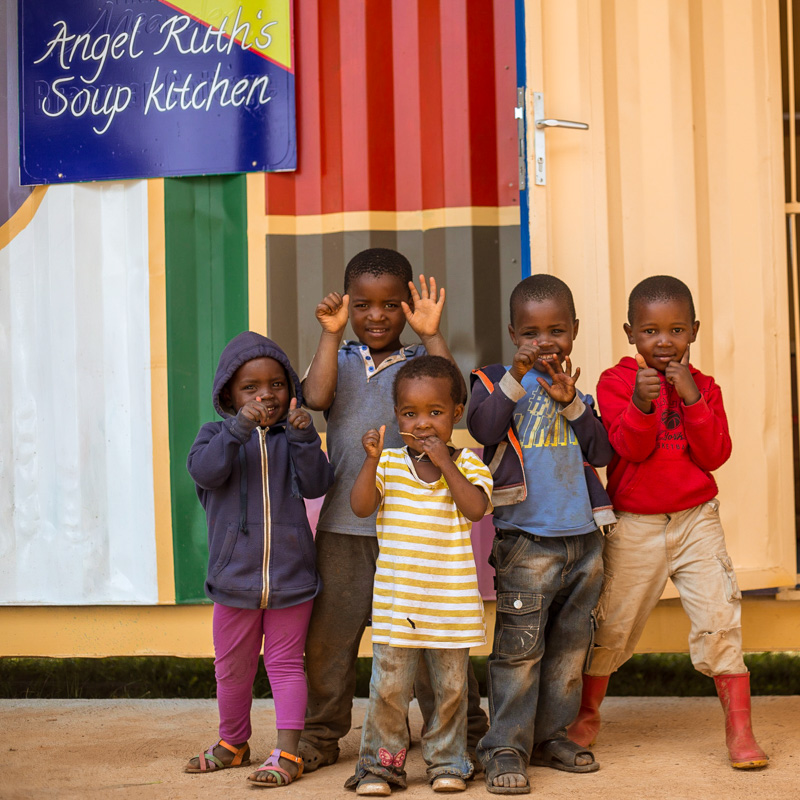The Magic in the Ordinary
“Impermanent are all component things, They arise and cease, that is their nature: They come into being and pass away, Release from them is bliss supreme.”
From the Mahaa-Parinibbaana Sutta (DN 16) (1)
According to the teachings of Buddha, all existence has three characteristics, and one of the main ones, Annica, or impermanence, indicates that everything has a beginning and an ending. Change, or impermanence, is the essential characteristic of all phenomenal existence. Nothing is lasting. All is fleeting. This may seem a bit pessimistic and miserable, however, when we are honest with ourselves, we know this is true. We cannot hold on to any experience, anyone, any object - they will all come to pass.
When this truth is not grounded in our being, we grasp at things and at life, attempting to cling to life and hold on to our experiences and people. Buddha teaches, that this creates suffering in us. “We wish for stability and permanence, and this is forever denied us, irrespective of whether we are talking about pain or pleasure. It is something we want but can never get.” Rigzin Shikpo
How can we contemplate and embody this meaning into our lives, while living life to its fullest with joy? “With the quality of openness, a kind of lightness creeps into the situation. This is the beginning of a new way of looking at the world” Rigzin Shikpo
Seeing the magic in the ordinary - we could be open and gentle to our life process as it is unfolding moment by moment, day by day…and especially to our remarkable thoughts that come and go continuously. “There is a powerful yet gentle magic about the fact that thoughts arise at all. Ordinary things are totally magical, but it takes a while to see that. Things don’t seem magical when we are used to them…The fact that thoughts and feelings appear at all - and what they are in themselves - is amazing.” Rigzin Shikpo
Notice the magic of your thoughts an feelings, then return to the breath, without clinging to the realisation of the magic in the ordinary.
I would like to repeat a story I “told” in 2013, an invite you to contemplate in a simple way….
The Broom Master (Taken from: Kindness, A Treasury of Buddhist Wisdom for children and parents. Collected and adapted by Sarah Conover)
Long ago, during the time of Buddha, lived a boy named Chundaka. Chunda - as he was fondly called - was a happy and good youngster, but was unable to learn to read and write. In comparison, Chunda’s older brother became quite knowledgeable, with a keen interest in Buddhism. When the older brother decided to lead a monk’s life, Chunda followed a long. He sought to live near his brother, but secretly, he also hoped to work alongside the monks and learn about Buddhism. “Why don’t you ask the Buddha if you can become a monk too?” his brother encouraged. But Chunda had no confidence. “Brother, how can I?” Chunda sadly replied. “I can’t memorize, and I can’t read or write. I have no knowledge of scriptures, and I won’t be able to learn them. A monk must be able to teach others many things.” But his brother assured him that both riches and knowledge were meaningless to the Buddha. “He values only the compassion we have for another and the ways to help all creatures suffer less. No one is as gentle and kind as he is. I know he will not disappoint you, Chunda. Go and hear for yourself,” prodded his brother hopefully.
So Chunda mustered all his courage. He bathed and purified himself. When he was certain he was quite ready, he approached the Buddha. The Buddha observed that this humble young man had an earnest and pure heart. He could see that Chunda would try his very best. The Buddha welcomed him as the newest monk in the community. The next morning, Ananda, head of all the monks, gave Chunda a small scripture to memorize, just 6 lines long. It was the first of hundreds that each monk was expected to learn by heart. But a week later, having tried his hardest, poor Chunda could still not recite it from beginning to end. Completely disheartened, he went back to the Buddha and admitted his failure. But the Buddha was not greatly disappointed; he had total faith in Chunda’s good intentions. The Buddha and Chunda sat thoughtfully together in silence. An idea suddenly occurred to the Buddha. “Chunda, are you a hard worker?” asked the Buddha. “Do you think you can sweep the temple and keep it spotlessly clean?” “Oh yes, teacher. I’m a good worker, and I’m very good at sweeping. I just cannot seem to learn scripture.” So the Buddha gave Chunda the task of keeping the temple perfectly clean. He was to hold no other job but temple sweeper. The Buddha then requested that Chunda speak two lines while sweeping: remove all dust, remove all dirt. Bur as soon as poor Chunda attempted his task, the words completely vanished from his mind. Luckily, Ananda overheard the Buddha’s instructions and could help Chunda remember them over and over again.
At last, a month later, Chunda had it learned by heart. “Remove all dust,” the monks heard Chunda whisper with the sweep of the broom. “Remove all dirt,” he murmured with the return sweep. Behind Chunda’s back, the other monks snickered at his memory problem. More than a few took some pride in the extent of their learning. Day and night Chunda poured his heart into his work, repeating those six words again and again. Eventually, however, over time every monk couldn’t help but admire Chunda’s perseverance. They had never witnessed such single-minded determination. In time, the few words that the Buddha had given him to memorize became more and more meaningful to Chunda. His chores became a meditation upon the words. Chunda’s curiosity deepened, and he suspected that the Buddha knew all along that these words were not as simple as they first appeared. “Did my teacher want me to sweep outer dust and dirt or inner dust and dirt?” he wondered. “What is inner dirt? How would one go about cleaning inner dirt?” he asked himself many times.
Some months later, Chunda found the answers to these questions himself. While he worked, insight nudged its way into his heart. Once in awhile now, the monks saw Chunda thoughtfully pausing from his endless task, leaning against his broom and looking at the far-off horizon.
At last a day came when Chunda felt ready to discuss his thought with the Buddha. “Venerable sir,” said Chundaka enthusiastically, “I think I finally understand the real meaning of the words your gave me.” “Please tell me what you understand,” encouraged the Buddha. “I believe that inner dust and dirt is a grasping,” said Chunda. “If we don’t like something in our lives, we grasp for a different situation. But if we really like something that we have, then we also grasp because we don’t want it to change.” Chunda continued, “To look at life clearly, we must always see through this. We must sweep the dust and dirt away and keep our inner temple clean.” The Buddha smiled warmly at Chunda’s thoughtful words.
And so, as the years passed, Chunda swept and meditated and thought deeply. He found he did not have to memorize scriptures as the other monks did, for teachings seemed to arise from within. After a time, he became known as one of the wise and gentle teachers of Buddhism, affectionately called “Chundaka, the Broom Master.” He lived a long and happy life. And for many years people journeyed to the monastery from distant places, not just to hear from the learned monks, but to listen especially to Chundaka, the Broom Master. He was their favorite, loved for his very simple, yet very wise sayings.





